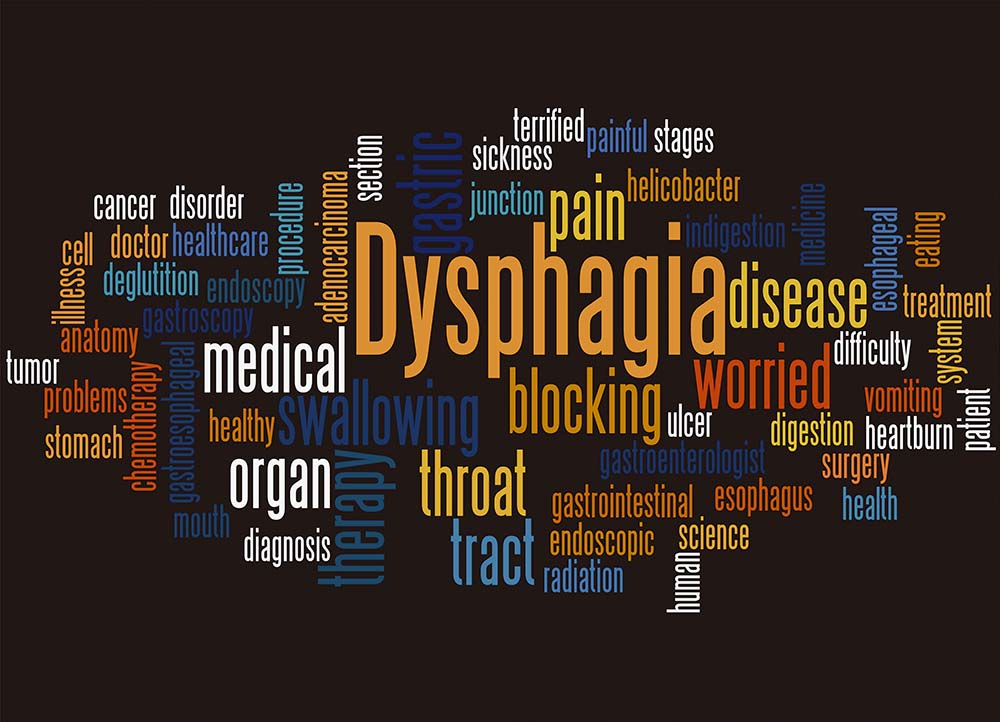Swallowing Therapy
Swallowing therapy may not be as recognizable as more traditional therapies, such as physical or occupational. However, it can be a vital treatment for patients suffering from dysphagia.
The act of swallowing is so natural to the majority of us. It is a reflex action which we do not even notice we are doing. But there are those who have difficulties swallowing.
This leads to problems with eating and drinking, which can cause malnutrition, chest infections and dental health problems. It’s important to get treatment early to avoid more serious complications developing.
What is dysphagia?
Dysphagia is a medical term used to describe conditions where patients have difficulty with swallowing. In some cases, they are unable to swallow particular liquids or foods. Others are unable to swallow at all.

Symptoms of dysphagia can present themselves in a variety of ways. Choking or coughing when eating and drinking. The inability to chew food correctly and persistent drooling. A feeling that something is stuck at the back of the throat or a wet, gurgling sound when speaking.
When symptoms occur, see your doctor to get the correct diagnosis. They may recommend swallowing therapy to help with recovery.
Causes
Dysphagia is not a disease itself, but a symptom of some diseases. There are two types of dysphagia:
Oropharyngeal dysphagia
This is related to problems with the throat or mouth. Its causes include those diseases which damage the nerve system.
A stroke, brain tumor, Parkinson’s disease, multiple sclerosis or even dementia to name a few. It can also be caused by a weakening of the muscles or benign or cancerous tumors in the mouth or throat.
Esophageal dysphagia
Relating to the esophagus, the tube carrying food from the mouth to the stomach. Anything which blocks or hampers the movement of food through the tube can be a cause.
Esophageal or laryngeal cancers produce tumors which become obstructions. Infections which inflame the esophagus, such as tuberculosis or thrush, restrict flow. And scarring caused by radiotherapy can narrow the passageway.
Unfortunately, dysphagia is more common in the elderly. This is because the muscles we use to swallow become weaker as we age.
How can swallowing therapy help?
As it is not a disease, dysphagia cannot be ‘cured’. However, swallowing therapy is used to relieve the symptoms. Its aim is to reduce the risk of choking on or inhaling liquids or foods.
Therapists help patients re-learn how to chew food, move it to the back of the throat, and then swallow. They teach patients to avoid food and liquid accidentally moving into the lungs and causing regurgitation.
Exercises to aid swallowing
Along with dietary changes, swallowing therapy focuses on strengthening the oral muscles, tongue, jaw, and throat. It involves exercises where patients practice controlling breathing during swallowing.
Other exercises help to prevent food becoming trapped in the throat and how to expel any that does become trapped. Initially, the exercises are done using small sips of water. As the muscles strengthen, real food is used.
Here at Fairview Rehab and Nursing Home in Queens, NY, we have extensive experience treating dysphagia. If you are having difficulty swallowing, please get in touch with us to see if swallowing therapy could help.
Here at Fairview Rehab and Nursing Home in Queens, NY, we have extensive experience treating dysphagia. If you are having difficulty swallowing, please get in touch with us to see if swallowing therapy could help.
